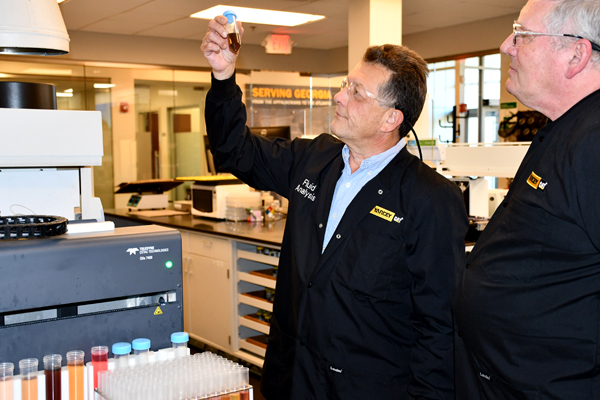Diesel, Oil, and Fluids Maintenance
Proper fluid maintenance is imperative to keep equipment operating at peak performance. Yancey’s Scheduled Oil Sampling Fluid Analysis is the only lab in Georgia that compares wear elements in your oil to hundreds of other machines. We analyze your used fluids and identify problems before they grow into major repairs. Combined with our knowledge of Caterpillar products, we provide you concise interpretive reports. Our technicians are available to answer any questions on fluid analyses and will discuss report-specific recommendations and readings. Our fluid readings will help you plan for downtime to fit your workload and maintain your bottom line.
VALUE OF FLUID ANALYSIS
You don’t need an advanced degree in chemistry to take advantage of your oil, coolant or fuel sampling results. Yancey S·O·SSM Services provides knowledgeable interpretations and recommendations you can actually understand—and act on. Here are the top three reasons to put the expert detective work of the S·O·SSM Services team to work for your operation.
1. Avoid costly failures.
Allowing an issue to go to failure can double or triple your repair costs—or more. Using expert fluid analysis recommendations, you can adjust or replace a single part, preventing a small problem from becoming a major repair. Save yourself time, money and undo stress by leveraging a program that’s designed to help you be successful.
2. Boost productivity and profitability.
Expert fluid analysis helps you manage overall equipment health, reducing owning and operating costs. Get the most use out of replacement components by knowing exactly when they need to be changed—and build a service history that can improve resale value when it’s time to upgrade.
3. Shorten repair time.
When you track what’s going on behind the scenes—like component wear and oil performance—you can predict problems and schedule accordingly. Since you and your Cat dealer are working as a team to manage your equipment, you’ll know parts and shop time are readily available.
Contact a Yancey product support representative or fill out the form to get started today.


